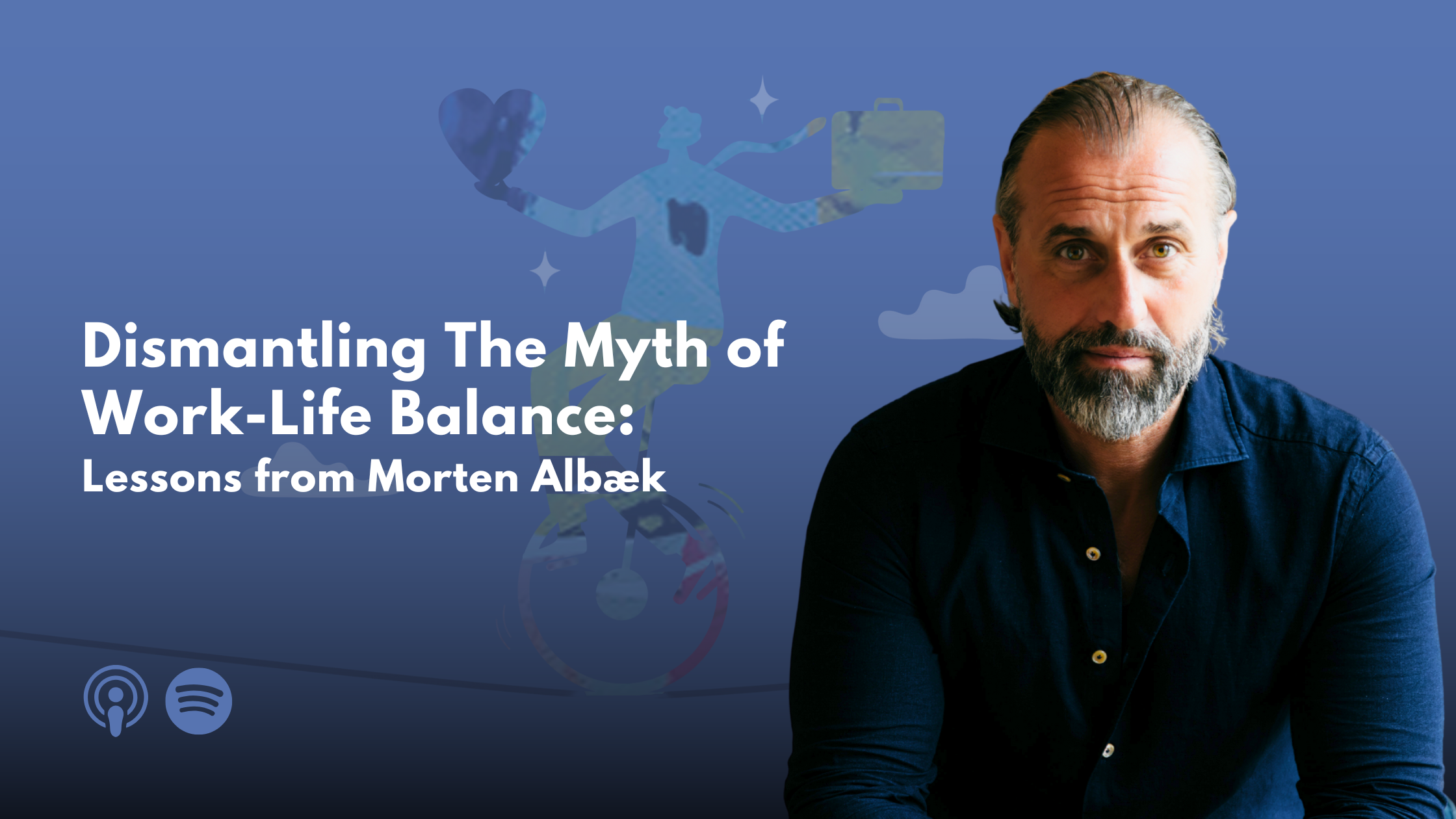In this episode of Meaningful Work Matters, Andrew Soren is joined by Danish philosopher and business leader Morten Albæk to explore why modern life, despite its progress, often feels empty.
Together, they unpack the distinction between happiness, satisfaction, and meaning, and how our failure to understand these differences has shaped organizations, leadership, and even our personal sense of purpose.
Albæk is the founder of Voluntās, a global advisory firm that measures and builds meaning into companies, governments, and societies. His approach is grounded in both philosophical inquiry and real-world leadership experience, with a background that spans executive roles in banking and wind energy.
The Great Paradox of Our Time
Albæk begins by naming what he sees as the most urgent challenge facing his generation: a deep contradiction between our material progress and our emotional decline.
By many economic and health indicators, life is better than ever. Yet levels of stress, loneliness, anxiety, and depression are rising.
He describes it as the greatest paradox of our time. We are living longer and becoming wealthier, but also feeling less connected, less whole, and less human.
One reason, Albæk argues, is the speed at which we now live. We fill our days with activity but leave little room for reflection. He offers a compelling metaphor: just as music requires pauses to reveal a melody, life requires pauses to reveal meaning. Without those pauses, everything becomes noise.
Meaning, Not Perfection
Albæk emphasizes that perfection is a false ideal because we all arrive in life imperfect.
We are born with physical, cognitive, and emotional variation, which is a part of being human and worth embracing.
A meaningful life is shaped through reflection, honesty, and the pursuit of dignity within the complexity of daily experience.
This distinction matters, especially when so much of modern work culture pushes us toward optimization and control. In contrast, Albæk’s framework centers meaning as the only emotional state that can support us through difficulty and imperfection.
What Is Meaning?
Albæk distinguishes meaning from both satisfaction and happiness, which are two concepts often mistaken for deeper fulfillment.
Satisfaction is the feeling we get when a need is met. It’s transactional and temporary.
Happiness refers to extraordinary moments. By nature, those moments come and go. If every moment were extraordinary, none would be.
“Meaning is when we stand in the now, reflecting upon the life we have lived and predicting the life that is ahead of us—and believing that the life ahead will be hopeful and dignified.”
This definition is central to Albæk’s work. Unlike satisfaction or happiness, meaning can coexist with sorrow, frustration, or loss. It is what allows us to continue moving forward with integrity, even when things are hard.
Work Is Not Separate from Life
A major focus of the episode is the idea that work and life are not opposites. Albæk takes aim at the language of “work-life balance,” calling it both inaccurate and damaging.
If work is something separate from life, then we are encouraged to treat it as a necessary burden rather than something that can (and should) be meaningful. Albæk points out that even if we could separate work from life, the hours we spend working are still hours we never get back.
Instead of chasing balance, he suggests we embrace what he calls the perfect imbalance. There will always be trade-offs between roles and responsibilities, but the goal is to keep that imbalance in a place where life still feels meaningful overall.
Meaningful Work Requires New Metrics
The conversation shifts toward how we evaluate work and organizations.
Albæk believes we are measuring the wrong things. Most notably, employee satisfaction. He argues that trying to meet everyone’s needs all the time is not only impossible, but also the wrong goal.
Instead, Voluntās measures what Albæk calls a meaningfulness quotient, based on four core drivers:
A sense of purpose
A sense of belonging
A sense of leadership
A sense of personal growth
These indicators offer a more human and realistic view of what makes work feel worthwhile.
Albæk believes that improving these metrics benefits both individuals and organizations. Engaged employees are more productive, creative, and committed. Not because they are being satisfied, but because they find meaning in what they do.
Virtues Over Values
Albæk draws a clear line between values and virtues. Many organizations proudly display their values, but he believes this practice is fundamentally flawed.
Values, he says, are not something an organization can claim for itself. They are given by customers, employees, and communities, and are based on how the organization behaves.
Virtues, on the other hand, are aspirations. They are qualities a company can strive for, knowing it will sometimes fall short but committing to the effort anyway.
“There’s no humility in corporate values. But there is humility in striving for a virtue.”
Replacing values with virtues brings both moral clarity and human honesty to the workplace. It invites continuous reflection and accountability, rather than empty declarations.
Why This Matters
Albæk invites us to redefine how we understand progress, both in society and in the context of work.
When we treat meaning as essential and measurable, we can design organizations that support purpose, belonging, growth, and moral clarity.
This matters because work plays a central role in shaping how people experience their lives. When meaning is present, individuals feel more grounded, more capable, and more connected to something larger than themselves.
Building meaningful organizations is a human imperative.




